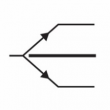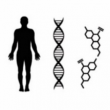User:Asimong/Test: Difference between revisions
Jump to navigation
Jump to search
unknown (talk) No edit summary |
unknown (talk) No edit summary |
||
| Line 21: | Line 21: | ||
| rowspan="2" | Compatibility-relations and inferential networks of beliefs on their own do not guarantee correspondence with actual-world facts beyond beliefs. | | rowspan="2" | Compatibility-relations and inferential networks of beliefs on their own do not guarantee correspondence with actual-world facts beyond beliefs. | ||
|- | |- | ||
| | | [[File:coherentism.png|110 px]] | ||
|- | |- | ||
| style="background-color:#e5b8b7" | Internalism about justification | | style="background-color:#e5b8b7" | Internalism about justification | ||
| Line 27: | Line 27: | ||
| rowspan="2" | The relationship, if any, between inner content facts and the external world is essentially mysterious, and it’s fully open to radical skepticism about how inner content-facts are verified in the absence of any intersubjective evidence. | | rowspan="2" | The relationship, if any, between inner content facts and the external world is essentially mysterious, and it’s fully open to radical skepticism about how inner content-facts are verified in the absence of any intersubjective evidence. | ||
|- | |- | ||
| | | [[File:internalism.png|110 px]] | ||
|- | |- | ||
| style="background-color:#e5b8b7" | Externalism about justification | | style="background-color:#e5b8b7" | Externalism about justification | ||
| Line 33: | Line 33: | ||
| rowspan="2" | The relationship between outer content facts and conscious minds, if any, is essentially mysterious, and it’s fully open to radical skepticism about how outer content-facts are verified in the absence of any conscious evidence. | | rowspan="2" | The relationship between outer content facts and conscious minds, if any, is essentially mysterious, and it’s fully open to radical skepticism about how outer content-facts are verified in the absence of any conscious evidence. | ||
|- | |- | ||
| | | [[File:externalism.png|110 px]] | ||
|- | |- | ||
| style="background-color:#b2a1c7" | Ontological dualism | | style="background-color:#b2a1c7" | Ontological dualism | ||
| Line 39: | Line 39: | ||
| rowspan="2" | Causal relations between the fundamentally mental things or properties and the fundamentally physical things or properties are then essentially mysterious: it’s metaphysically possible for all the facts about fundamentally physical things or properties to exist or stay the same, while all the facts about fundamentally mental things or properties ''either fail to exist or completely change.'' | | rowspan="2" | Causal relations between the fundamentally mental things or properties and the fundamentally physical things or properties are then essentially mysterious: it’s metaphysically possible for all the facts about fundamentally physical things or properties to exist or stay the same, while all the facts about fundamentally mental things or properties ''either fail to exist or completely change.'' | ||
|- | |- | ||
| | | [[File:dualism.png|110 px]] | ||
|- | |- | ||
| style="background-color:#8db3e2" | Hobbesian pessimism | | style="background-color:#8db3e2" | Hobbesian pessimism | ||
| Line 45: | Line 45: | ||
| rowspan="2" | Treating people as egoistic and mutually antagonistic beasts or biological machines operating according to decision-theoretic algorithms, actually operates as a nocebo priming people, in society, to choose and act collectively in essentially ''worse'' ways. | | rowspan="2" | Treating people as egoistic and mutually antagonistic beasts or biological machines operating according to decision-theoretic algorithms, actually operates as a nocebo priming people, in society, to choose and act collectively in essentially ''worse'' ways. | ||
|- | |- | ||
| | | [[File:Hobbes.png|110 px]] | ||
|- | |- | ||
| style="background-color:#8db3e2" | Rousseauian optimism | | style="background-color:#8db3e2" | Rousseauian optimism | ||
| Line 51: | Line 51: | ||
| rowspan="2" | Treating people as essentially free, virtuous, and happy as individuals in the state of nature, yet also essentially enslaved, corrupted, and made unhappy by society, actually operates as a ''nocebo'' priming people, in society, to choose and act collectively in essentially ''worse'' ways. | | rowspan="2" | Treating people as essentially free, virtuous, and happy as individuals in the state of nature, yet also essentially enslaved, corrupted, and made unhappy by society, actually operates as a ''nocebo'' priming people, in society, to choose and act collectively in essentially ''worse'' ways. | ||
|- | |- | ||
| | | [[File:Rousseau.png|110 px]] | ||
|- | |- | ||
| style="background-color:#eeece1" | Leibnizian theological optimism | | style="background-color:#eeece1" | Leibnizian theological optimism | ||
| Line 57: | Line 57: | ||
| rowspan="2" | Since natural evil and moral evil do actually exist, then either (i) God could not have prevented this evil (hence God is ''not'' omnipotent), or (ii) God could not have foreseen this evil (hence God is not ''omniscient''), or (iii) God either created or foresaw this evil and therefore is Himself evil (hence God is ''not'' omnibenevolent): so, given the fact of evil, theological optimism is self-refuting. | | rowspan="2" | Since natural evil and moral evil do actually exist, then either (i) God could not have prevented this evil (hence God is ''not'' omnipotent), or (ii) God could not have foreseen this evil (hence God is not ''omniscient''), or (iii) God either created or foresaw this evil and therefore is Himself evil (hence God is ''not'' omnibenevolent): so, given the fact of evil, theological optimism is self-refuting. | ||
|- | |- | ||
| | | [[File:Leibnitz.png|110 px]] | ||
|- | |- | ||
| style="background-color:#eeece1" | Schopenhauerian existential pessimism | | style="background-color:#eeece1" | Schopenhauerian existential pessimism | ||
| Line 63: | Line 63: | ||
| rowspan="2" | A universal human condition of suffering and unhappiness, even if it were true, would still be meaningful, otherwise we wouldn’t care about our suffering and our unhappiness and prefer the opposite: so existential pessimism is self-refuting. | | rowspan="2" | A universal human condition of suffering and unhappiness, even if it were true, would still be meaningful, otherwise we wouldn’t care about our suffering and our unhappiness and prefer the opposite: so existential pessimism is self-refuting. | ||
|- | |- | ||
| | | [[File:Schopenhauer.png|110 px]] | ||
|- | |- | ||
| style="background-color:#fbd4b4" | Reductive physicalism | | style="background-color:#fbd4b4" | Reductive physicalism | ||
| Line 69: | Line 69: | ||
| rowspan="2" | If everything is reducible to fundamentally physical, contingent facts, then since the reducibility relation is logical strong supervenience, 79 but logical strong supervenience is itself a ''non''-contingent, ''non''-physical strong modal relation, therefore reductive materialism/physicalism is self-refuting. | | rowspan="2" | If everything is reducible to fundamentally physical, contingent facts, then since the reducibility relation is logical strong supervenience, 79 but logical strong supervenience is itself a ''non''-contingent, ''non''-physical strong modal relation, therefore reductive materialism/physicalism is self-refuting. | ||
|- | |- | ||
| | | [[File:physicalism.png|110 px]] | ||
|- | |- | ||
| style="background-color:#fbd4b4" | Post-modern relativism | | style="background-color:#fbd4b4" | Post-modern relativism | ||
| Line 75: | Line 75: | ||
| rowspan="2" | If all truth is relative, and no truth is universal, then it cannot be universally true that all truth is relative and no truth is universal: so post-modern relativism is self-refuting. | | rowspan="2" | If all truth is relative, and no truth is universal, then it cannot be universally true that all truth is relative and no truth is universal: so post-modern relativism is self-refuting. | ||
|- | |- | ||
| | | [[File:relativism.png|110 px]] | ||
|} | |} | ||
79 For explicit definitions of strong supervience, natural or nomological strong supervenience, and logical strong supervenience, see section 6 below. | 79 For explicit definitions of strong supervience, natural or nomological strong supervenience, and logical strong supervenience, see section 6 below. | ||
Revision as of 13:08, 15 February 2023
table work
Done: William Irwin Thompson on the Four Cultural Ecologies of the West
To do: Productive Democracy
79 For explicit definitions of strong supervience, natural or nomological strong supervenience, and logical strong supervenience, see section 6 below.










